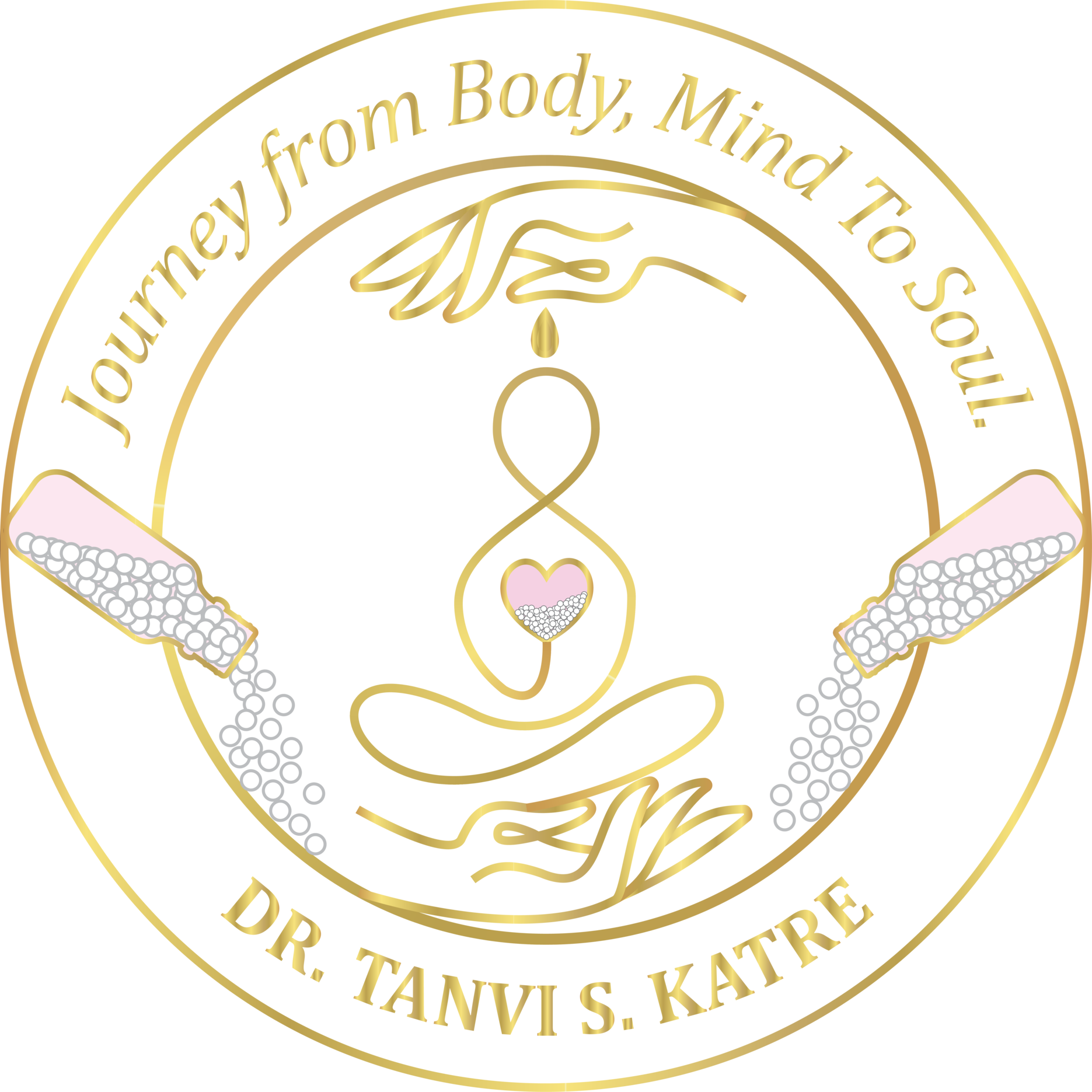Mood Disorder
MOOD DISORDER: CAUSES, SIGNS & SYMPTOMS, BENEFITS OF HOMEOPATHY
1. What is Mood Disorder?
A mood disorder is a mental health condition that primarily affects your
emotional state. It’s a
disorder in which you experience long periods of extreme happiness, extreme
sadness or both.
Certain mood disorders involve other persistent emotions, such as anger and
irritability.
It’s normal
for your mood to change, depending on the situation. However, for a mood
disorder diagnosis,
symptoms must be present for several weeks or longer. Mood disorders can
cause changes in your
behaviour and can affect your ability to perform routine activities, such as
work or school.
2. What are all the mood disorders?
Mood disorders include:
- Depression and its Subtypes:
- Depression (Major or Clinical Depression): Depression (major or clinical depression) is a common mental health condition. Depressive symptoms include feeling sad or hopeless. The condition can also cause difficulty with thinking, memory, eating and sleeping. For a person to receive a diagnosis of clinical depression, symptoms must last for at least two weeks.
- There are several different types of depression, including:
- Post Partum Depression ( peripartum depression): This type of depression occurs during pregnancy or after the end of a pregnancy in women. Women experience hormonal, physical, emotional, financial and social changes after having a baby. These changes can cause symptoms of postpartum depression.
- Persistent Depressive Disorder: This is a chronic form of depression that must last for at least two years. Symptoms may occasionally lessen in severity during this time. It’s less severe than major depression disorder but it’s ongoing.
- Seasonal Affective Disorder: This type of depression occurs during certain seasons of the year. It typically starts in the late autumn or early winter and lasts until spring or summer. Less commonly, SAD episodes may also begin during the late spring or summer. Symptoms of winter seasonal affective disorder may resemble those of major depression. They tend to disappear or lessen during spring and summer.
- Depression with psychosis: This is a type of severe depression combined with psychotic episodes, such as hallucinations (seeing or hearing things that others don’t) or delusions (having fixed but false beliefs). People who experience depression with psychosis have an increased risk of thinking about suicide.
- Premenstrual Dysphoric Disorder (PMDD): This type of mood disorder occurs 7 to 10 days before menstruation and goes away within a few days of the start of the menstrual period. Symptoms may include anger, irritability, anxiety, depression, and insomnia.
- Disruptive Mood Dysregulation Disorder (DMDD): DMDD affects children and adolescents. It involves frequent anger outbursts and irritability out of proportion to the situation. DMDD is more severe than intermittent explosive disorder (IED), and anger is present most of the time, occurring before the age of 10.
- Depression Related to Medical Illness: A persistent depressed mood and a significant loss of pleasure in most or all activities that's directly related to the physical effects of another medical condition.
- Depression Induced by Substance Use or Medication: Depression symptoms that develop during or soon after substance use or withdrawal or after exposure to a medication.
3. Who do mood disorders affect?
Mood disorders can affect anyone, including children, adolescents, and adults.
4. What are the symptoms of mood disorders?
Each mood
disorder has different symptoms and/or different patterns of symptoms.
Mood
disorders typically have symptoms that affect your mood, sleep, eating
behaviors, energy level, and thinking abilities (such as racing thoughts or
loss of concentration).
In general, depressive symptoms include:
- Feeling sad most of the time or nearly every day.
- A lack of energy or feeling sluggish.
- Feeling worthless or hopeless.
- Loss of interest in activities that formerly brought enjoyment.
- Thoughts about death or suicide.
- Difficulty concentrating or focusing.
- Sleeping too much or not enough.
- Loss of appetite or overeating.
In general, symptoms of hypomanic or manic episodes include:
- Feeling extremely energized or elated.
- Rapid speech or movement.
- Agitation, restlessness, or irritability.
- Risk-taking behavior, such as spending more money than usual or driving recklessly.
- Racing thoughts.
- Insomnia or trouble sleeping.
5. What causes mood disorders?
Researchers believe several factors contribute to the development of mood disorders, including:
- Biological Factors: The brain areas responsible for controlling your feelings and emotions are the amygdala and orbitofrontal cortex. People with mood disorders have been shown to have an enlarged amygdala on brain imaging tests.
- Genetic Factors: People who have a strong family history of a mood disorder are more likely to develop mood disorders, which shows that mood disorders are likely partly genetic/inherited.
- Environmental Factors: Stressful life changes, such as the death of a loved one; chronic stress; traumatic events; and childhood abuse are major risk factors for the development of a mood disorder later on in life, especially depression. Depression has also been linked to chronic illness, such as diabetes, Parkinson's disease, and heart disease.
6. Homeopathy For Mood Disorder
- Now, let's explore homeopathy, a gentle, side-effect-free approach that holds the potential to heal the emotional distress underlying mood disorder.
- Homeopathy is like a gentle whisper of healing. It's a holistic approach that understands that our emotional distress has root causes.
- Homoeopathy doesn't just address the surface symptoms; it seeks to heal the very essence of what's troubling us.
- Homeopathy is a gentle approach, like a caring friend who understands without causing any unwanted effects.
- It's a holistic method that goes straight to the root causes of emotional distress and, in the case of anger issues, it helps to heal the pain that leads to such panicking situation. What's truly unique about homeopathy is its ability to provide relief without adding the burden of side effects. Instead, it promotes mental and emotional well-being, offering a path to healing without the worry of any unpleasant reactions.
7. How Homoeopathy Addresses Mood Disorder?
Homeopathy is based on the principle that the mind, body, and soul are intricately connected, and to achieve true healing, all aspects of an individual must be considered. This holistic approach recognizes that emotional and mental well-being are as vital as physical health. Here's how homoeopathy understands and works with the mind, body, and soul connection:
- Soul - Mind-Body Connection:
Homeopathy recognizes that our emotional and mental state can significantly influence our physical health. Stress, anxiety, and unresolved emotional issues can manifest as physical symptoms. Homeopathic remedies are chosen based on an individual's emotional and mental state, as well as physical symptoms, to promote overall balance.
- Individualised Treatment:
- Homeopathy focuses on individualised treatment. When you come to us, we will talk to you and listen to you carefully. It's like having a chat with a good friend who really cares about you. We ask about your feelings, your worries, and your life.
- We take a detailed case history, considering not only physical symptoms but also the person's emotions, fears, and past experiences. By addressing the emotional and mental aspects, homoeopathy aims to restore harmony to the entire being.
- Healing the Root Causes:
Homeopathy aims to identify and address the root causes of both physical and emotional distress. Instead of merely suppressing symptoms, it seeks to eliminate the underlying imbalances that contribute to illness. It’s a holistic method that goes straight to the root causes of emotional distress and, in the case of suicidal behaviour, helps to heal the pain that leads to such despair. This approach aligns with the idea that true healing involves addressing the core issues affecting mind, body, and soul.
- Mental and Emotional Well-Being:
One of the unique qualities of homeopathy is its ability to promote mental and emotional well-being without side effects. Homeopathic remedies gently stimulate the body's innate healing abilities, supporting emotional balance and resilience.
- Soul Connection:
In a broader sense, homeopathy acknowledges the spiritual or soul aspect of an individual. While not directly a spiritual or religious practice, homeopathy recognizes that a person's beliefs, values, and life experiences can impact their well-being. Homeopathy takes a holistic view, considering the person as a whole, including their spiritual or soul connection.
- Monitoring and Adjustments:
We don't just give you the remedies and send you on your way. We stay with you on this journey. We will check how you're feeling and adjust things if needed. It's like having a buddy to help you along the way.
8. Benefits of Homeopathy in Mood Disorder Management
A. Non-Invasive and Side-Effect-Free Treatment
Homeopathy is a ray of hope for those wrestling with mood disorders. Unlike many conventional treatments, homeopathy is entirely side-effect-free. It's like finding a path to healing without having to navigate through a forest of side effects. This is especially significant in the context of mood disorder management, where individuals need a gentle approach that doesn't add more emotional weight to their struggles.
B. Suitable for All Age Groups
One of the most exceptional aspects of homeopathy is its inclusivity. It doesn't discriminate based on age. It's a healing art for everyone, from children learning to navigate their emotions to teenagers facing the ups and downs of youth, and adults seeking inner harmony. Homeopathy is like a steadfast friend, offering support at every stage of life's journey.
C. Long-term Effectiveness and Sustainable Results
Homeopathy isn't about quick fixes; it's about creating lasting change. In the realm of chronic conditions like mood disorders, long-term effectiveness is the cornerstone of healing. Homeopathy doesn't merely address the symptoms; it delves deep to find the root cause, offering the promise of sustainable results. It's like planting a seed of emotional resilience that grows into a mighty tree, providing shade and tranquillity in the long run.
Choosing homeopathy is not just a decision; it's an investment in your emotional well-being. It's a step toward a future where your moods don't control your life, where you can experience each day with balance and peace.
With homeopathy, the journey to managing mood disorders becomes smoother, gentler, and more hopeful.
WE are like your caring friends who will walk with you on your journey to feeling better.
So, let's embark on this journey together and discover the potential for managing mood disorder through the gentle and holistic power of homeopathy.

